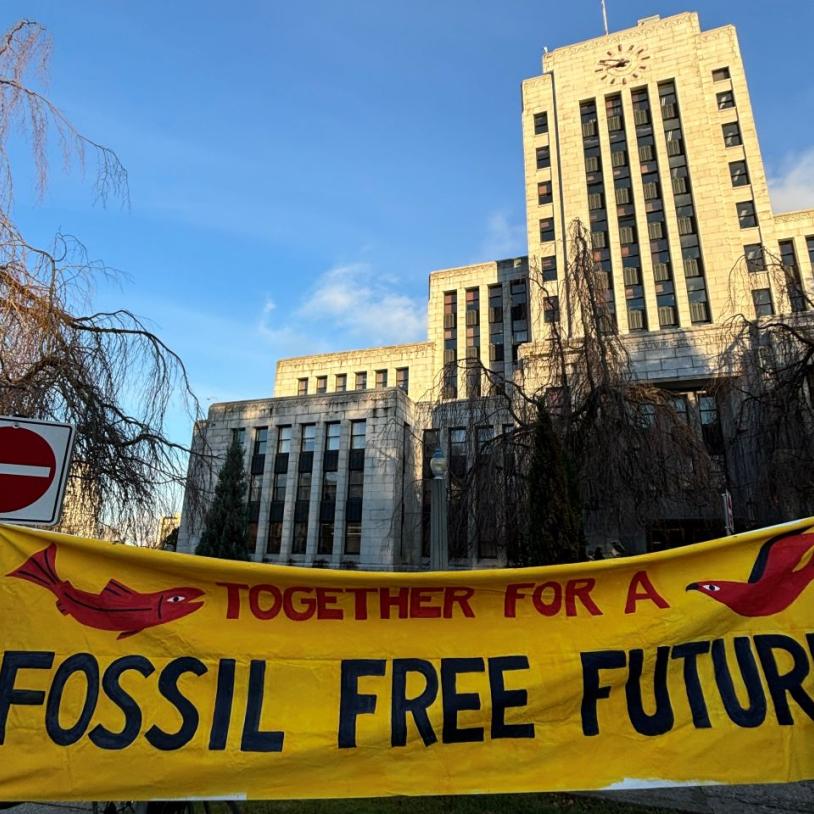Independent power costs raise questions about B.C. policy
Sunday, December 6, 2009
Depending on whom you choose to believe, a wholesale expansion of British Columbia's electricity supply is either fiscal folly or a wise investment in the future.
Both Energy Minister Blair Lekstrom and the Independent Power Producers Association of B.C. (IPPBC) anticipate that the government's plan to contract several billion dollars' worth of new private sector electricity development will strengthen both domestic power supply and B.C.'s natural advantages in the power export market.
Skeptics include British Columbia's largest industries, and critics such as Marvin Shaffer, a consulting economist and adjunct professor at Simon Fraser University who has participated as an intervenor in several BC Hydro hearings before the B.C. Utilities Commission.
And would you believe that BC Hydro's own calculations suggest that at least part of the time, the government-owned utility will be forced to sell electricity at prices lower than what it's paying independent power producers (IPPs) to deliver it to them?
Hydro is in the process of firming up long-term contracts with IPPs to buy power at prices that average out, conservatively, to about $100 per megawatt hour.
Meanwhile documents recently filed to the utilities commission by Hydro suggest that the overnight purchase price for a megawatt of power at a primary trading hub in the western United States -- Hydro's primary export power customer -- is somewhere around $60.
That has more or less been the standard price for the last five years according to studies by U.S. federal electricity market regulators -- although the overnight price in California was closer to $80.
Hydro projections indicate that spot market prices won't hit $100 until 2032.
Hydro's primary industrial customers, who account for about one third of the electricity consumed each year in B.C., calculates that this disparity could cost BC Hydro customers $300 million a year -- or more -- in what amounts to a subsidy to IPPs.
There is no such thing as a typical year for a utility that relies on rainfall to power its hydroelectric facilities.
But in general terms, Hydro is looking to boost B.C.'s electricity supply by about 10 per cent through contracts with independents.
All of it will be renewable power including wind and small-scale hydro.
That expansion will be enough to make B.C. electricity self-sufficient by 2015, as well as create enough additional power to create a viable, long term power export business capitalizing on booming U.S. demand for green power.
The export market looks solid -- recent documents from California regulators suggest that utilities in the southwest state may be willing to pay as much as $130 a megawatt for fixed volumes of renewable power on fixed-price 20-year contracts.
That means Hydro could develop a solid, profitable market for about half the renewable electricity supply it is in the process of contracting through its 2008 Clean Call to independent project developers.
The other half of the equation is more complicated.
Hydro has orders from government to contract for enough new power to meet domestic supply in even the most critical low-water year, with a deadline of 2015 to reach that target.
Most years, however, it has a lot more water available for power generation than the critical year baseline requires.
That means Hydro will in most years be receiving from IPPs a volume of power that exceeds domestic demand -- and will be in a position of having to sell it on to the overnight market at prices that could be lower than the price IPPs are receiving to put it on the grid.
The baseline for new domestic power supply is 3,000 gigawatt hours of power, but in a bumper water year, Hydro could be seeking a market for a surplus that could reach 10,000 gigawatt hours.
The Joint Industry Electricity Steering Committee, representing Hydro's large industrial customers including operators of mines and pulp mills, wonders if the provincial government has a business plan demonstrating how all of these possibilities will ultimately work to B.C.'s advantage.
"I'm all for it if it makes money," said steering committee executive director Dan Potts.
"The thing I don't understand is the fundamental economics. Our estimate is that every 1,000 gigawatt hours is going to cost an extra $300 million. And it goes on year after year. At least, after the fast ferries were done, you could park them.
"But once you commit to a long term contract you've got to keep your commitments.
"If you look at the cost curve for major hydro investments, over time the costs go down, but with IPP contracts you've got a commitment to pay a certain dollar figure plus escalation for the duration of the contract."
Consultant Marvin Shaffer has advocated that Hydro take advantage of opportunities to import power wherever practical -- such as trading markets where prices are lower than IPP contracts.
Shaffer says there is "no question" new electricity supply developments will cost more than Hydro's existing heritage assets.
However, he said, "the self-sufficiency policy is forcing us to have surpluses in most years, in all but extreme drought conditions.
"We are certainly paying more than the market would pay for it. If BC Hydro was a commercial enterprise, or if [Hydro subsidiary] Powerex was doing this as a commercial venture, they wouldn't buy power at the prices BC Hydro is paying.
"Those firm forward prices for the next five years are in the $50-$60 range. I'm sure they will go up in the future but it's just a huge risk to think that they are going to go up to $100 or more."
Energy Minister Blair Lekstrom acknowledged that an element of risk may creep in where Hydro experiences a surplus of power.
But he dismisses suggestions that Hydro may incur huge trading losses or that the province is contracting some kind of huge subsidy for IPPs.
"I am not a supporter of 'Buy high, sell low,'" Lekstrom said. "That is just not going to happen under my watch of this ministry."
He agreed in some years Hydro may be selling some surplus power at short term non-contract prices, for less than it's paying to receive it but on balance, favourably priced long-term export contracts represent a net benefit to B.C.
Short term trading losses on spot markets, on the other hand, represent the price of making B.C. electricity self-sufficient. Lekstrom calls self-sufficiency an "insurance policy" and said the cost of the "policy" will be reasonable.
"Our ability under the export is not in the short term markets. It's in the long term contracts with the PG&Es [Pacific Gas and Electric Company] of the world, and the other utilities.
"The [Hydro-estimated] prices you are looking at in those charts are not based on contracts that would be negotiated with our clean renewables, for which many U.S. jurisdictions would [wish to] secure long term contracts. We have had ongoing discussions with those."
Paul Kariya, executive director of the Independent Power Producers association of B.C., sees California as the key to the success of the entire venture, and "as I understand it, a [delivered] price of $130 in 2015 isn't out of the question."
He is confident the government's renewable power will succeed and that it will be profitable for the province.
But Kariya agreed with a suggestion that it would benefit the debate for the government to produce more information about how the policy will work, and how it will succeed. "I agree wholeheartedly that this is something government must do and I have asked for a single document or something that pulls it all together. That is something I haven't seen," Kariya said.
He added that such information would make it easier for publicly traded IPPs to demonstrate the viability of their projects and attract investment.





